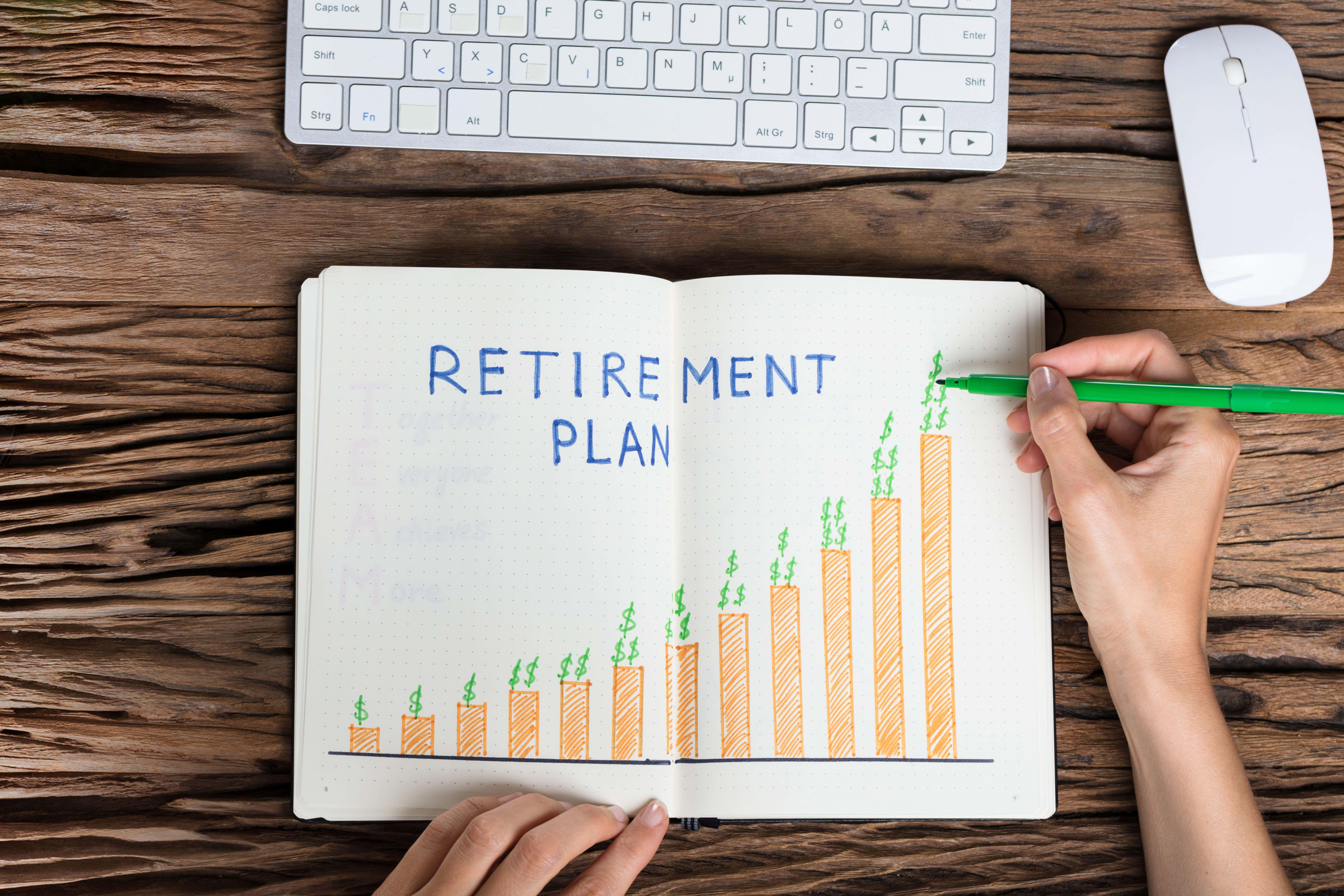How to check if you on track for a comfortable retirement – and what to do if your’e not
From pensions to investments, here’s what you need to know

The nation is fairly evenly split when it comes to feeling confident about heading towards a comfortable retirement.
Just over half (52%) of people with a defined contribution (DC) pension pot feel they will be comfortable financially in their later years – with 48% of people feeling otherwise, a new survey has found.
DC pensions are commonly used as workplace pensions and the retirement income you may eventually end up with will depend on factors such as how much you pay in, how well your investments perform and how you decide to use the money in retirement.
The research, carried out for consultancy Barnett Waddingham also found that it is often older workers who feel less confident about their retirement prospects.
Worryingly, nearly a third (32%) of people set to retire within two years are not confident their later years will be comfortable.
More positively, seven in 10 (71%) adults aged 24 and under are confident about their retirement prospects, as are six in 10 (61%) 25 to 30-year-olds.

Automatic enrolment into workplace pensions started in 2012, meaning that employees save into a pension scheme unless they decide to opt out. They also receive a pension boost from employer contributions and tax relief.
In contrast to the younger generations, only around two-fifths (42%) of 51 to 55-year-olds feel confident about their retirement.
Confidence was found to jump up slightly for people aged 55-plus, with half (50%) feeling confident.
Across the age groups, one in 25 (4%) people don’t feel confident about ever being able to retire.
Interestingly, the research also found that 2% of workers who own their home outright never expect to retire, as do 3% of people with a mortgage.
But this rises to 5% of people in private rental accommodation, and 7% in social or council housing.
The research also looked to understand why people who feel confident about their retirement prospects feel this way.
Many of those who do feel confident also have other sources of money beyond their DC pension pot, the study found.
Three in 10 (29%) have other investments and a similar proportion (28%) own a property outright.
Men are more likely to have other investments than women, the survey indicated.
Older workers who do feel confident about their retirement prospects are also particularly likely to have a defined benefit (DB) pension pot as well as their DC pension savings, the research found.
DB pensions promise to pay pension savers a certain income when they retire, based on their salary, such as final salary pensions.
The research found that 8% of employees who feel confident about retirement have a DB pension to fall back on, rising to nearly a fifth (18%) of people aged 51 to 55 and (19%) 61 to 65.
A fifth (20%) of savers who feel confident pointed to the fact they have been placed into a workplace pension as the reason for this.
But Barnett Waddingham warns that only saving the minimum amount into a pension could leave people with a shortfall in their retirement – if they plan to rely on their pension alone.
Among those who aren’t confident about their retirement prospects, more than a third (35%) believe they simply don’t have enough saved into their retirement fund.
A fifth (19%) haven’t saved enough to cover both them and their spouse, while a third (32%) don’t believe they earn enough to save for a comfortable retirement.
Nearly three in 10 (29%) say they don’t have any other savings or investments beyond their DC pot.
One in eight (12%) people aren’t confident about retirement because they think they’ll be renting as a pensioner.
A lack of visibility around retirement also plays a part. A quarter (26%) of people who aren’t confident about retirement simply don’t know what a comfortable retirement would look like or how to get there, and 8% haven’t thought about retirement at all.
Mark Futcher, a partner and head of DC pensions at Barnett Waddingham says: “In a rare glimmer of good news, people are currently more confident about retirement the closer they are to it, meaning something is going right.
“But there are two key areas for concern. Firstly, a third of people planning to retire in a couple of years are going into that period of their life without confidence that they’ll be able to live comfortably.
“And most people who are confident are such because of other wealth, property, or private and DB pensions.”
The research was carried out by Censuswide for Barnett Waddingham among more than 2,000 UK employees with a DC pension, in March.
Futcher also has some tips to help people become more “pension confident”.
While not everyone is in a financial position to increase their pension contributions, paying in more may help to boost pension confidence.
In general, the earlier someone pays money in, the longer that money has to grow in the pot. Bear in mind the value of investments can go down as well as up.
Futcher says: “Check that you receive the maximum contribution from your employer, particularly if they use a tiered contribution structure.
“Additionally, using pay rises as a prompt to increase contributions can enhance your confidence in securing a comfortable retirement. If you increase your contribution at every pay rise, you won’t notice the impact on the amount you take home each month.”
Also, remember that knowledge is power. Knowing how much you have in your pension (and any other pots with previous employers) can help you to understand if you’re on track with your retirement savings.
If you’re struggling to understand pensions, you could try the Government-backed MoneyHelper website, or ask your employer to point you to where you can find out further information about your workplace pension.
Over-50s can also use the free Pension Wise guidance service.
Downloading your pension provider’s app and checking your pension pot regularly may help with confidence. Look out for any tools within the app to help you get an idea of what level of pension pot you may end up with.
The Pension Tracing Service can also help with tracking down “lost” pensions. The Pensions and Lifetime Savings Association (PLSA) also produces a set of retirement living standards that can give people a general idea of what sort of lifestyle they may expect in retirement. Some people may also want to pay for financial advice.
The gov.uk website can also help people check state pension forecasts, so you’ve got a better overview of your retirement prospects.
Bookmark popover
Removed from bookmarks